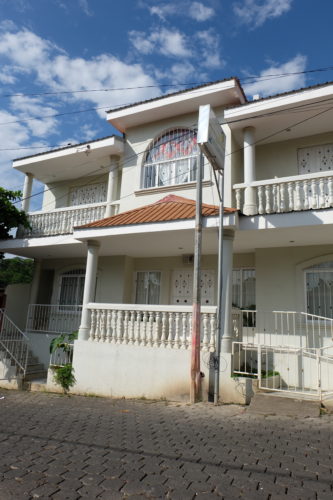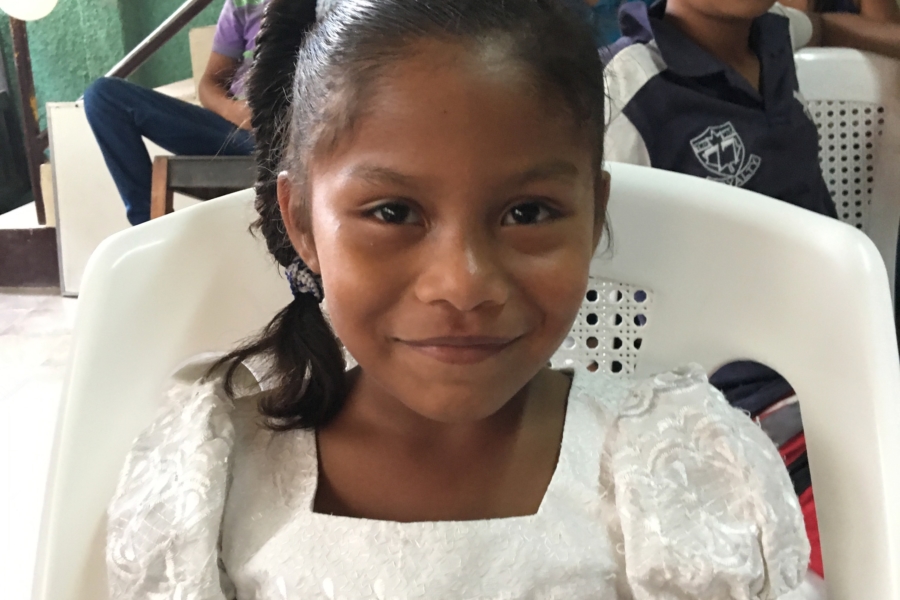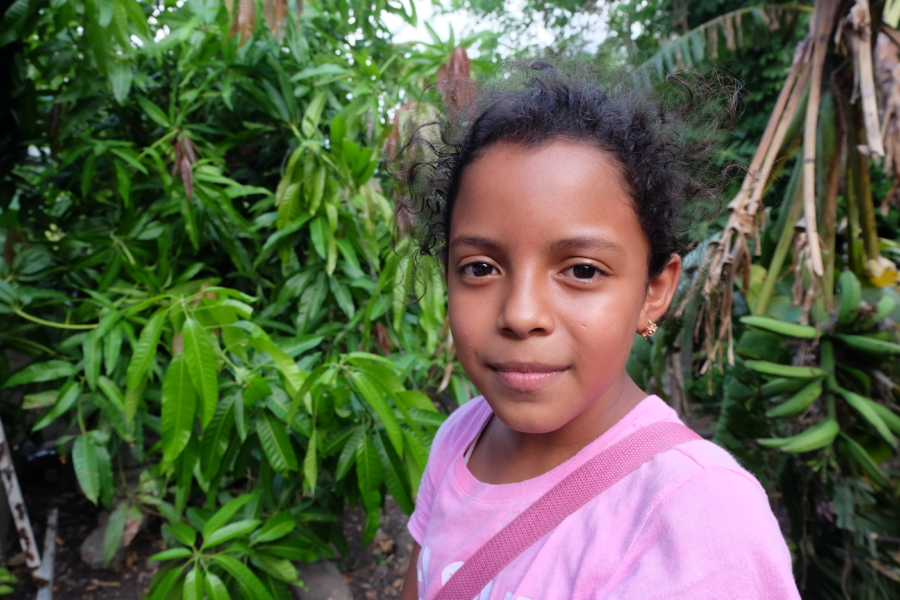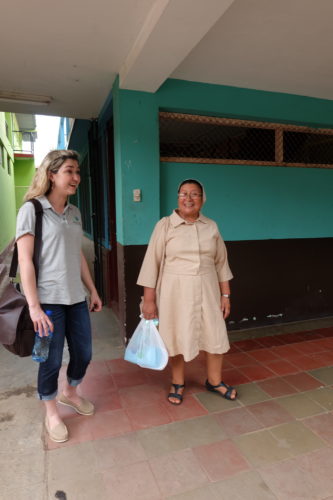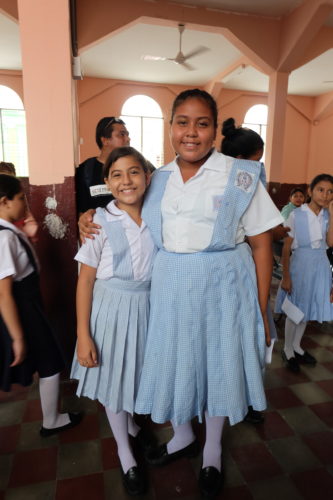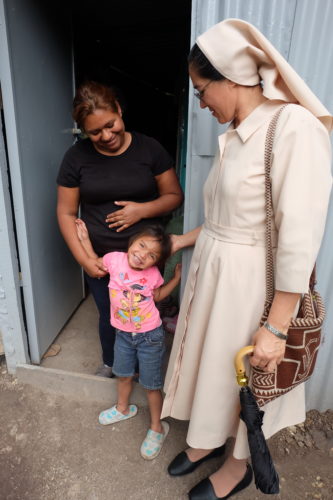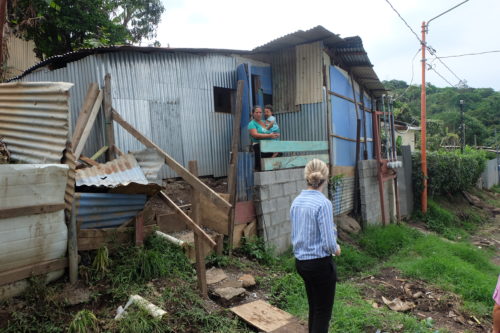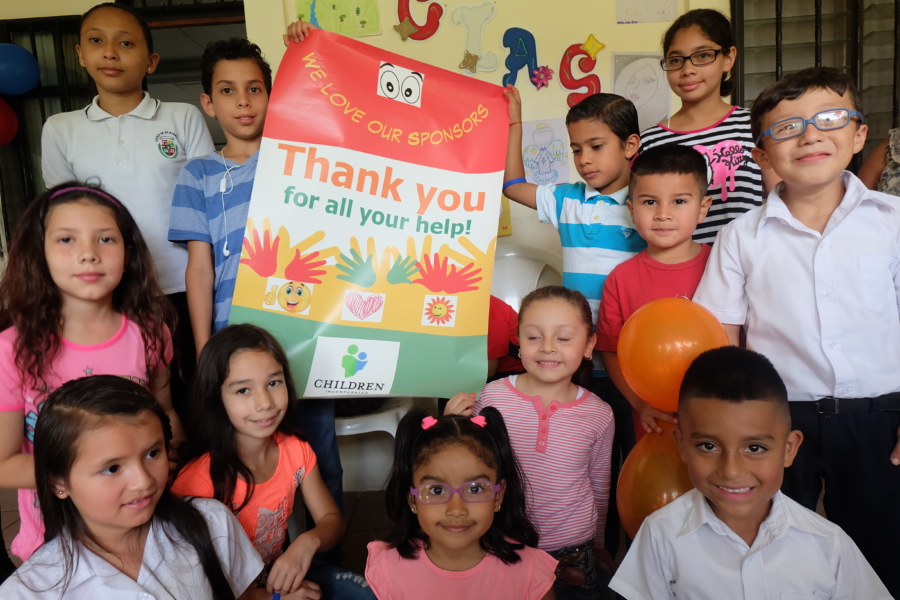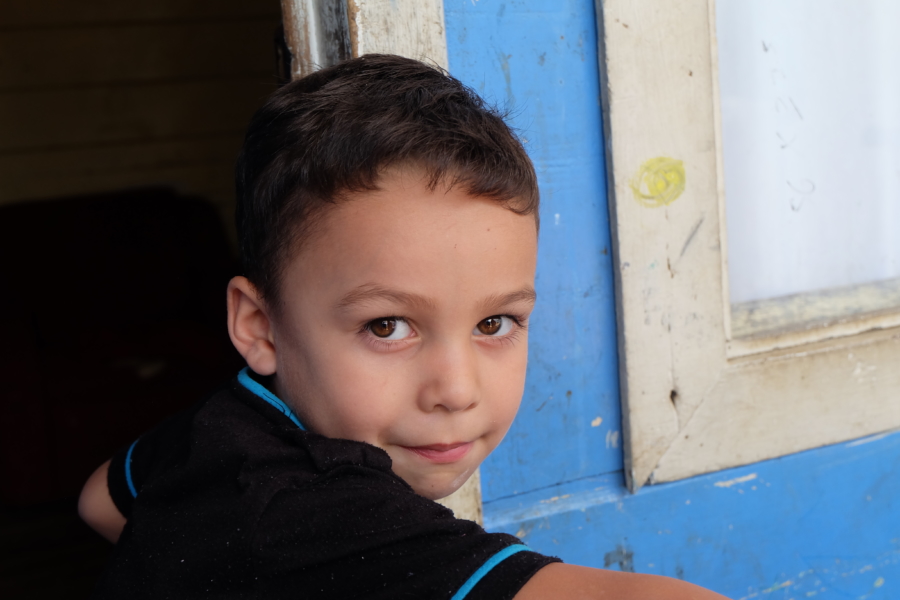After leaving Costa Rica in the fall of 2022, our Director of International Programs, Luis Bourdet, traveled to Nicaragua to visit the two affiliated sites that we work with in the country.
Today, we hear from Luis about his trip to the La Recolección School, where sponsored children are provided with a safe and spacious place to get an education.
“The children are also given food to take home on the weekends, and they receive school supplies and other basic needs throughout the year as well.”
Learning about our affiliated site
“La Recolección is a semi-private school run by the Sisters of Charity in the town of Leon, about two hours away from Managua, the capital of Nicaragua. More than 800 children from low and lower middle-class families attend this school, and it has an excellent reputation in the community. Upon my visit in 2022, our volunteer coordinator discussed with me the need for upgrades and repairs at the school, but there is little money for this, as they have to pay teachers’ salaries and other expenses to run the school,” explained Luis.
“More than sixty children are currently enrolled in the Children Incorporated sponsorship program at the school, and we were told that all of them are from low-income families, mostly former members of a Nicaraguan political group, the Sandinistas, that get very little support in the community for their children’s education or for their survival.”
Sponsors making sure children are educated
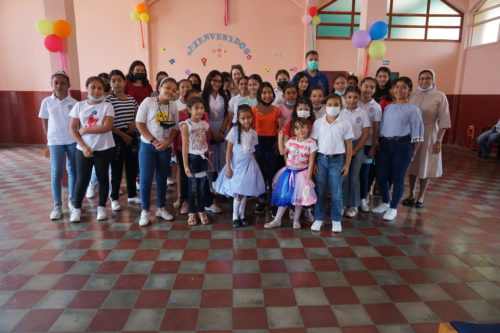
Thanks to their sponsors, children who otherwise would have to attend overcrowded public schools are able to attend La Recolección.
“The Children Incorporated sponsored children have most of their school fees paid at La Recolección thanks to their sponsors, and their parents contribute a small amount so that they have the responsibility to support their children as well. The children are also given food to take home on the weekends, and they receive school supplies and other basic needs throughout the year.”
“At a meeting with the sponsored children and their parents, they expressed their gratitude for the support. The only other option for them in Leon would be to send their children to a government school, where getting a proper education is much more difficult due to overcrowding within classrooms. They are much more comfortable sending their children to the La Recolección School, which has a limit on the number of children in attendance,” said Luis.
A home for a family in need
“At the end of the day, I visited some homes with our volunteer coordinator. One of the homes of a sponsored child was made with a metal sheet roof, so we had to wait outside of the house when arriving because it was extremely hot inside. There is only a mother to support the child. The house is located in an area with a lot of crime, and the mother worries about her daughter.”
“Our volunteer coordinator told me she will check and see if a small plot can be provided by the local government, and then she will request support from our Hope In Action Program to build a house for this family,” said Luis.
***
How do I sponsor a child in Nicaragua?
You can sponsor a child in Nicaragua in one of three ways: call our office at 1-800-538-5381 and speak with one of our staff members; email us at sponsorship@children-inc.org; or go online to our sponsorship portal, create an account, and search for a child in Nicaragua that is available for sponsorship.

